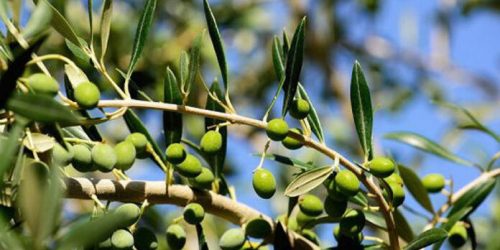ISLAMABAD: Pakistani olive oil producers are preparing to enter the global market as 27.5 million olive trees on more than 30,000 acres of land have been planted.
The plantation extends through Punjab, Khyber Pakhtunkhwa, Baluchistan, Islamabad and Azad Kashmir, said a report published by Gwadar Pro on Wednesday.
Pakistan has 10 million-acre suitable land for olive plantation, almost double than Spain, which is currently the largest olive oil producer in the world.
With an increase in the area under cultivation, Pakistan is passing through a silent revolution in olive oil production. The sector is rapidly moving the country towards self-reliance by introducing Pakistan’s national brand under the name of ‘Pak Olive’ by 2021.
According to the report, the Pakistan Olive Oil Council will be established under the Ministry of National Food Security and Research to suggest policy measures for the promotion of olive oil in the country.
Muhammad Tariq, director of Pak Olive, said within the 2019-20 season, the estimated olive oil production capacity in Pakistan will reach approximately 1,400 tonnes. By the year 2027, production is expected to reach 16,000 tonnes.
The government also plans to issue certifications for the marketing and branding of olive oil for the private sector. The project targets plantations of over 50,000 acres in the country by 2022.
The available potential area for olive cultivation is about 10 million acres in Punjab, particularly the Pothwar region, Balochistan, Khyber Pakhtunkhwa and erstwhile Fata, Azad Jammu and Kashmir (AJK) and Gilgit-Baltistan.
According to the report, by 2024, the value of oil olive production would increase to Rs1.727 billion.
“In KP, over a million olive plants are being grown on an area of 9,391 acres, engaging 768 farmers. Thus, by 2024, the country will have about 3 million fruit-bearing olive plants producing roughly 1,415 tonnes of olive oil with an estimated value of Rs4.416 billion.”
Olive oil processing mills have been established by both public and private sectors in Punjab, Khyber-Pakhtunkhwa and Baluchistan. In all, nine plants have been established in Pakistan for oil extracting. Eight out of nine plants are already operational and one will be functional by October.
According to an expert, olive plants would help mitigate the effects of climate change.
They also provide permanent crop cover that not only saves land from erosion and further degradation but also minimize silt load to downstream water reservoirs.
Olive orchards require less water, fertilisers, pesticides and fuel energy as compared to other major annual oilseed crops.







